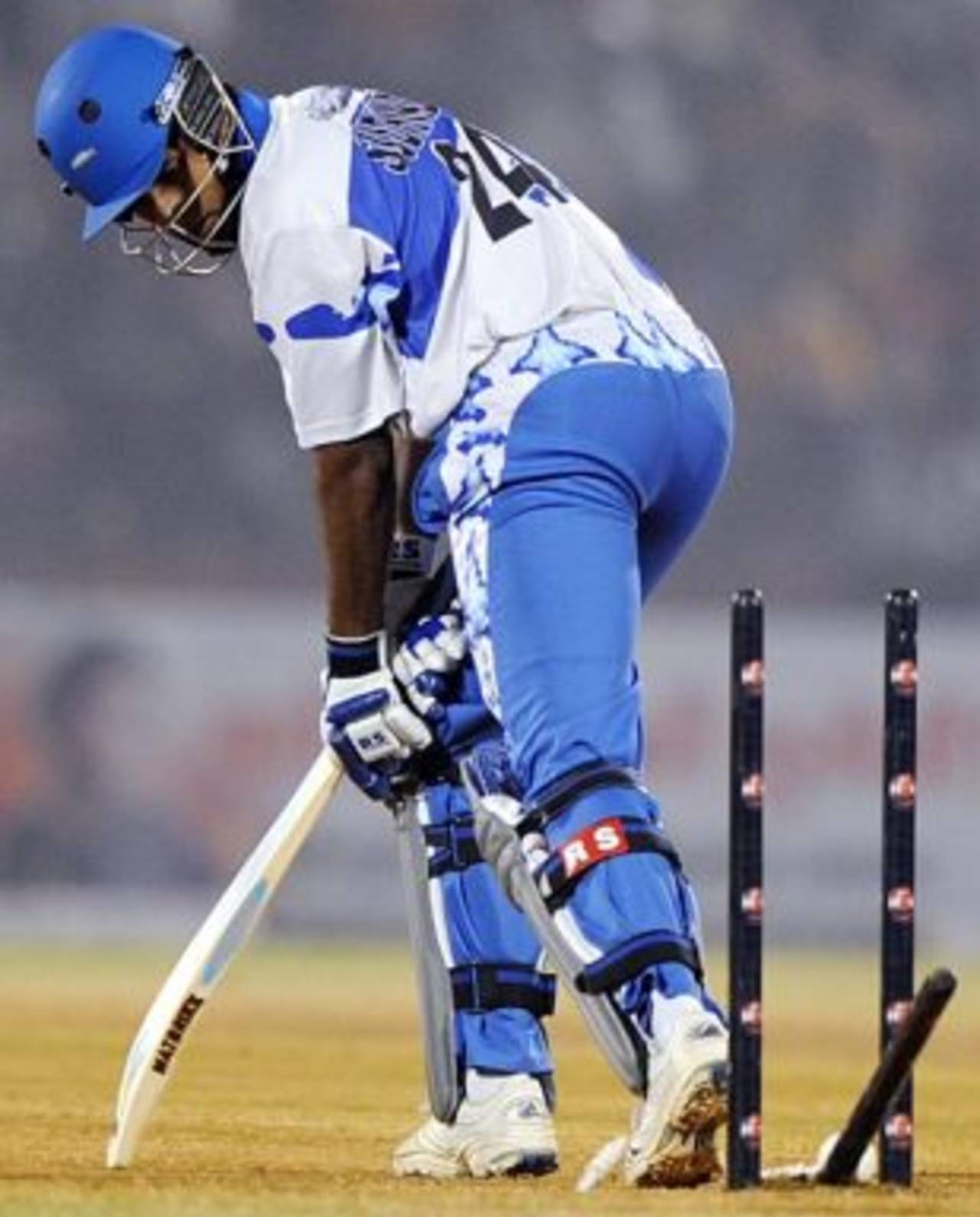In May, when India TV released tapes of its sting operation uncovering potential black-money transactions, players openly flouting IPL rules, and possible spot-fixing, the BCCI needed to act fast to restore credibility. They did, conducting
an enquiry that reached its conclusion in quick time. As important as it is to conduct a fair trial, it's equally important the process is quick and a conclusion is arrived at while the issue is still fresh in public memory. The
punishments handed out to the guilty cricketers were also severe, and it can be said that the BCCI succeeded in setting the right precedent.
One can argue that while
TP Sudhindra's crime of taking money to bowl a no-ball in a local league game deserved a life ban, the others were not guilty of much more than talking through their hats. The income tax department has given a clean chit to these cricketers because it found no evidence of ill-gotten monetary gain, so banning them might seem a bit harsh. While three of them will be serving one-year bans from competitive cricket, which theoretically means that they can return to represent their Ranji Trophy teams in 2013, in reality it could be the end of their careers, for states rarely reinstate tainted cricketers. If the BCCI has taken a tough stance, the state associations are also likely to follow suit.
I have spent enough time with cricketers to say with authority that bragging is an intrinsic part of most casual cricket conversations. There are always a couple of players in every team who like to talk big. Perhaps that's just what
Abhinav Bali and
Mohnish Mishra were doing. Unfortunately they were talking to strangers and were caught on camera. While banning players for bragging may be a little harsh, this article isn't about defending the guilty or criticising the punishments. It was important for the BCCI to take action because a strong message had to be sent across to every player in the country. Hopefully these sentences will work as a deterrent in the future.
While handing out severe punishments might be a logical end to an enquiry, it cannot stem the rot completely. If severe punishments could prevent players from indulging in match/spot-fixing, the likes of Salman Butt wouldn't have gone to jail in 2011 after several cricketers were banned for life in 2000. The most important lesson to be learnt from the Lord's spot-fixing was that you could go to jail for bowling an innocuous-looking no-ball. Unfortunately Sudhindra perhaps chose to learn something else: that there was money to be made by overstepping the line.
If severe punishments could prevent players from indulging in match/spot-fixing, the likes of Salman Butt wouldn't have gone to jail in 2011 after several cricketers were banned for life in 2000
Banning these five cricketers was relatively easy, and it shouldn't be considered as an end or a "solution". It addresses the outcome of the act, not the reasons for it. In fact, it should be seen as only the beginning of a tough process - that of creating an environment that discourages foul play, encourages awareness among players, and makes franchisees equally responsible when it comes to preventing corruption.
It's common knowledge that since the advent of the IPL, there has been a spike in the number of player-agents on the circuit. They not only promise players IPL deals (taking a hefty cut for their services) but also get lucrative deals for bat-stickers etc. Some of them even lure young cricketers with gifts, in cash and kind. There is an urgent need for the IPL, in association with the franchisees, to regularise this sector, which will make the processes involved transparent.
The BCCI has already put a system in place that educates every cricketer in the country about anti-doping laws and practices. There's also a 24-hour helpline that deals with day-to-day problems with regards to medicines prescribed by local doctors. There should be a similar structure in place to impart ethical education to players with regards to spot/match-fixing, the code of conduct, and so on. Also, a helpline, easily accessible to all players, for help on issues regarding signing an agent or discussing an offer made by a random sponsor, must be made available.
All IPL teams should also be instructed to lay down and enforce stringent rules of player conduct. Since the IPL, quite rightly, claims to be at par with international cricket, it must also follow the same discipline. The hotels the teams stay in should be sanitised, the events that the players attend should be monitored, and every player must be made aware of the consequences of falling out of line.
It may be an expensive and exhausting exercise to sanitise a tournament of the IPL's magnitude but if it enhances the credibility of the IPL, and of Indian cricket as a whole, it's worth every dollar spent. Not to mention the careers of young cricketers saved from the perils of modern cricket.
